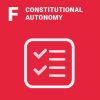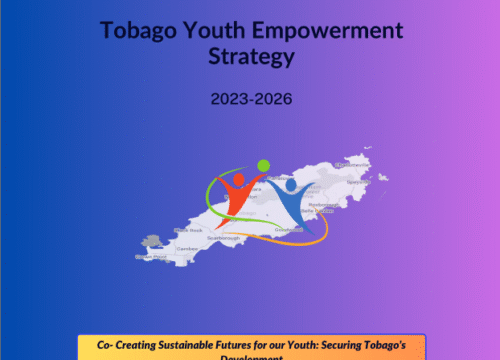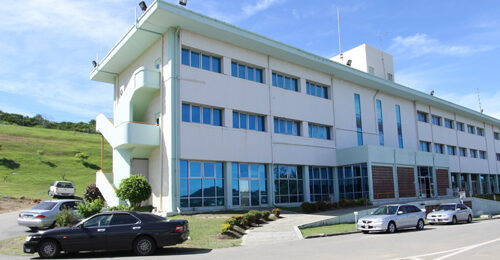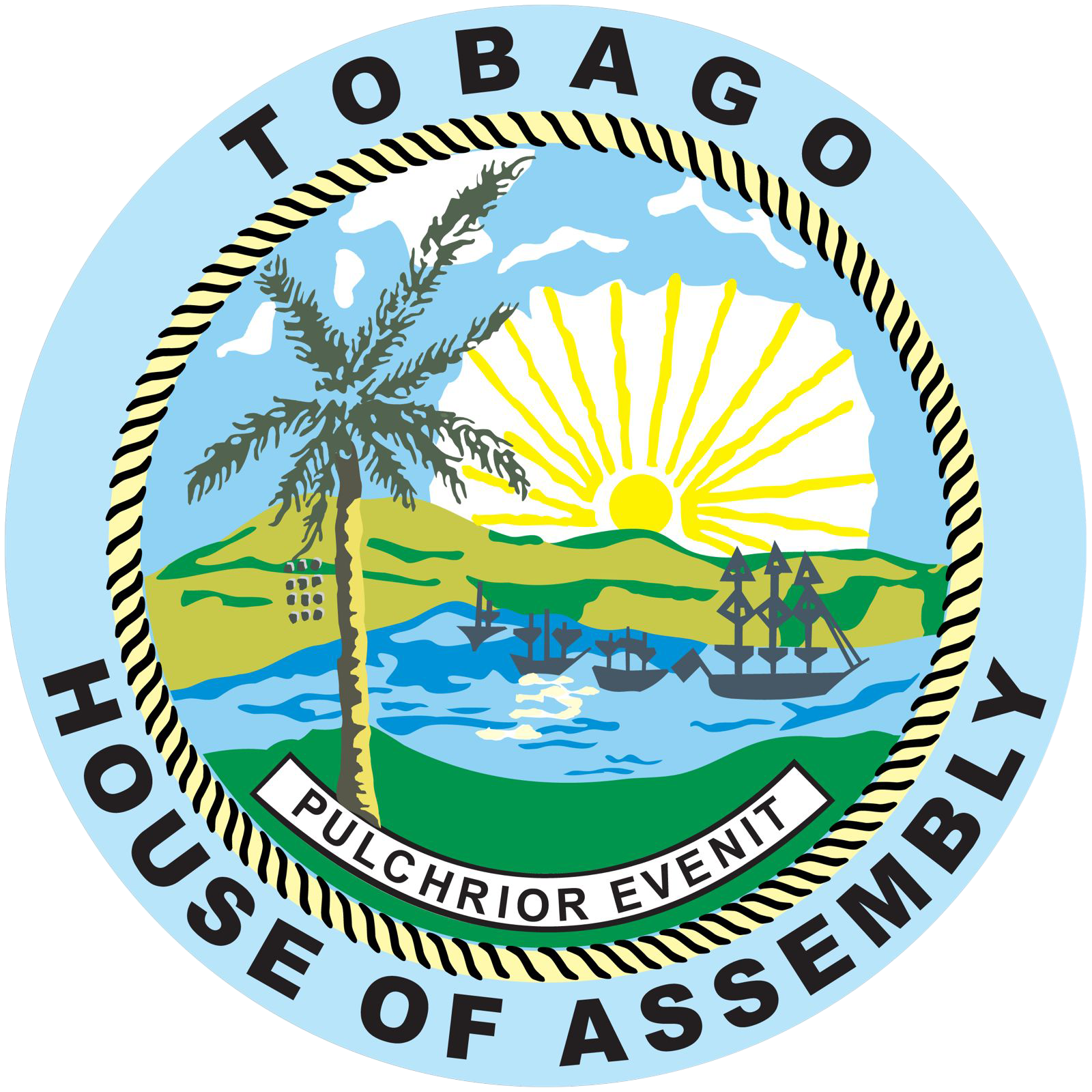DEVELOPMENT AGENDA PRIORITY F: Constitutional autonomy within the twin-island Republic of Trinidad and Tobago.
About the
PriorityPerformance
benchmarksMajor
ConcernsSelected
Focus
AreasTargets &
IndicatorsPolicies, Plans
& ProgrammesProjects
PriorityPerformance
benchmarksMajor
ConcernsSelected
Focus
AreasTargets &
IndicatorsPolicies, Plans
& ProgrammesProjects
About priority F
- Effective and accountable governance requires that institutional and governance arrangements, as well as the decision-making processes they regulate, are controlled autonomously (or with concurrence where necessary) at the government level where these problems arise.
- This has been the fundamental position of governments in Tobago for more than six decades, including the current administration of the Tobago House of Assembly.
- It is only through “constitutional autonomy” that Tobago will achieve its full economic potential in its quest to become the Greatest Little Island on the Planet.
- Constitutional autonomy for Tobago is important for several reasons, including enabling self-governance, preserving cultural identity, promoting economic development, enhancing political stability, increasing accountability, and addressing historical inequalities.
- Constitutional autonomy reflects the desire of Tobagonians for greater control over their affairs.
Primary performance benchmark: Priority F
Benchmark: Achieve constitutional self-government and establish a new and fully functional Tobago House of Assembly between 2026 and 2028.
Indicator of progress/success:
- A Tobago Self-Government Constitutional Amendment Act is proclaimed by the President of the Republic of Trinidad and Tobago in 2026.
- A new Tobago House of Assembly Act is passed by the Tobago Legislature and proclaimed by the President of the Republic of Trinidad and Tobago by 2028.
Benchmark country: Canada, the province of Nova Scotia.
Major concerns: Priority F.
| Concerns | Problem Statements |
| National hegemony | a. Institutional fragmentation caused by national political and economic hegemony |
| Critical policy intervention | b. Inability to decide on critical policy issues related to social and economic development |
| Autonomy | c. Lack of constitutional autonomy regarding decisions about Tobago’s future development. |
| Territorial limits | d. Territorial ambiguity regarding the extent of Tobago’s constitutional autonomy. |
1.0 Selected Focus Areas Priority F?
The THA has developed a proposal to establish the Department of Intergovernmental Affairs (DIA) to address matters requiring concurrence between the Tobago House of Assembly and the Government of Trinidad and Tobago.
Until the DIA is established, the Office of the Chief Secretary (OCS) will retain full responsibility for intergovernmental affairs, and it will continue to pursue Tobago’s constitutional autonomy by prioritizing the following areas:
- Constitutional Reforms:
- Constitutional Amendment: Continue the process to amend the Constitution of Trinidad and Tobago to institutionalize Tobago’s self-government. This will include securing for the Tobago House of Assembly (THA) absolute legislative and executive authority in Tobago for matters such as education, health, and environmental management.
- Establish a Tobago Commission on Constitutional Autonomy (TCCA): Establish an independent commission to review the current constitutional arrangements for governance between Trinidad and Tobago and recommend changes to enhance Tobago’s autonomy. This commission will include THA representatives, constitutional scholars and representatives from Tobago’s NGOs and CBOs.
- Establish the Tobago Self-Government Transition Commission: Establish the Tobago Self-Government Transition Commission to establish a plan outlining the processes and steps required to transition from the current Tobago House of Assembly to a new Tobago government structure.
- Fiscal Autonomy:
- Financial Sustainability: Ensure the THA has a stable source of revenue from taxes derived from resource extraction within the island’s proposed Exclusive Economic Zone (EEZ) and other taxes collected in Tobago but levied and collected by the Government of Trinidad and Tobago.
- Revenue-Sharing Mechanism: Develop a fair and transparent revenue-sharing mechanism that allocates a portion of national revenues to Tobago based on the agreed-upon fair share model.
- Public Awareness and Education:
- Civic Education: Launch public awareness campaigns to educate Tobagonians about their constitutional rights, the benefits of autonomy, and the role of the THA in Tobago's governance. These will include school programs, community workshops, and media campaigns.
- Tobagonian Identity: Foster a strong sense of identity and pride among Tobagonians through cultural, historical, and educational initiatives. This will include promoting Tobago’s unique cultural heritage, history, and traditions.
- Political Advocacy and Negotiation:
- Engage in Dialogue: Initiate dialogue with the central government and other stakeholders to discuss and negotiate the terms of increased autonomy for Tobago. This will involve formal negotiations, roundtable discussions, and consultations with Tobagonians.
- Form Alliances: Build alliances with civil society organizations and other interest groups that support Tobago’s autonomy. This will help create a broader coalition of support and increase the chances of success.
- International Support and Best Practices:
- Seek International Support: Engage with international organizations and foreign governments that support autonomy and self-governance. This will include seeking technical assistance, funding, and diplomatic support.
- Learn from Best Practices: Study the experiences of other regions and countries that have successfully implemented autonomous governance arrangements.
MAIN REFERENCE INFORMATION
- The History, Evolution and Current Status of Internal Self-government for Tobago
- Towards a Tobago self-government? Constitutional reforms in Trinidad and Tobago
- THE TOBAGO ISLAND GOVERNMENT BILL, 2021 Explanatory Note
- THE CONSTITUTION (AMENDMENT) (TOBAGO SELF-GOVERNMENT) BILL, 2021 Explanatory Notes
- Trinidad and Tobago Country Report 2024
OTHER INFORMATION
- Report on the National Advisory Council on Constitutional Reform
- Trinidad and Tobago Self-rule: INSTITUTIONAL DEPTH AND POLICY SCOPE
- Court Administration as a Tool for Judicial Reform
- EU Annual Report On Human Rights And Democracy In The World 2023 Country Updates
- Key Principles of Public Sector Reforms Case Studies and Frameworks
- Alternative Dispute Resolution: Mediation And Conciliation
- Reforming Public Institutions and Strengthening Governance
- DRAFT PLAN OF ACTION TO IMPLEMENT THE RECOMMENDATIONS FROM THE MESICIC COMMITTEE OF EXPERTS An OAS/ Government of Trinidad and Tobago Project
Targets and Indicators of Progress/Success
Target-F-1
Establish a Division of Legal Affairs, DLA and a Department of Intergovernmental Affairs, DIA, in the THA by 2026.
Indicator-F-1
The Division of Legal Affairs and the Department of Intergovernmental Affairs are operationalized by 2026.
Target-F-2
Appoint a Secretary for Legal Affairs and an Assistant Secretary responsible for Legal and Intergovernmental Affairs to take all necessary steps to secure self-government for the people of Tobago by 2026.
Indicator-F-2
The Secretary for Legal Affairs and the Assistant Secretary responsible for Legal and Intergovernmental Affairs are appointed by 2026.
By 2026, the Secretary for Legal Affairs will provide clear directives regarding the THA's position on the Tobago House of Assembly Island government bill, 2021 and the Constitutional Amendment, Tobago Self-Government Bill, 2021
By 2026, the Secretary for Legal Affairs will provide clear directives regarding the THA's position on the Tobago House of Assembly Island government bill, 2021 and the Constitutional Amendment, Tobago Self-Government Bill, 2021
Target-F-3
Empower the Secretary for Legal Affairs to establish the Tobago Constitution Transition Commission by 2026.
Indicator-F-3
The Secretary of the DLA establishes the Tobago Constitution Transition Commission by 2026.
Target-F-4
Establish the Fair Share Revenue Agreement to negotiate equitable revenue sharing between the government of Trinidad and Tobago and the THA by 2026.
Indicator-F-4
The Secretary for Legal Affairs establishes a policy document for a Fair Share Revenue Agreement by 2026.
Target-F-5
Begin the process of negotiating a Fair Share Revenue Agreement with the government of Trinidad and Tobago by 2026.
Indicator-F-5
The Secretary for Legal Affairs convenes a process to negotiate a Fair Share Revenue Agreement with the Cabinet of Trinidad and Tobago by 2026.
Target-F-6
By 2027, establish the Tobago Youth Assembly as part of the legislature of the Tobago House of Assembly.
Indicator-F-6
The THA Act is amended to include provisions for the Tobago Youth Legislature.
Target-F-7
By 2027, establish the Tobago Youth Executive Council as part of the executive of the Tobago House of Assembly.
Indicator-F-7
The THA Act is amended to include provisions for the Tobago Youth Executive Council.
Target-F-8
Invest an appropriate % equivalent of GDP in matters related to institutional strengthening in the THA by 2035 and an appropriate % equivalent of GDP by 2045.
Indicator-F-8
Percentage of GDP equivalent invested in matters related to institutional strengthening year-over-year.









